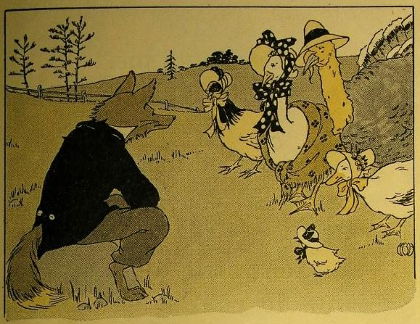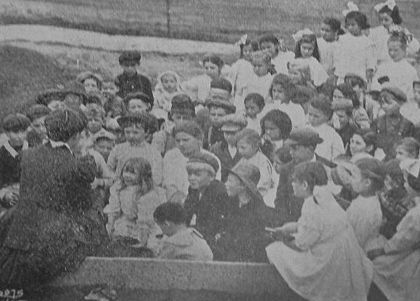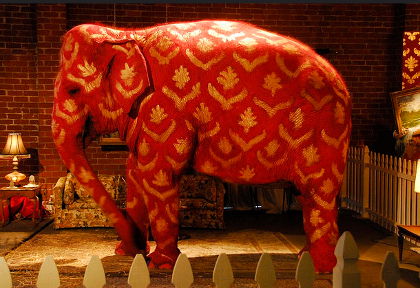Jonathan Dodd‘s latest column. Guest opinion articles do not necessarily reflect the views of the publication. Ed
If my memory serves me right, there was once a chicken called Chicken Licken. This Chicken Licken was attacked by an acorn, savagely jettisoned by an oak tree onto the unprepared head of Chicken Licken.
This wouldn’t be much of a story if it ended there, but Chicken Licken was a pessimist, and also, if truth be told, something of a fantasist. At this point I should probably throw in the possibility of membership of some religious grouping with an apocalyptic agenda.
The need to gather all her friends
To cut to the chase, Chicken Licken inappropriately decided that the sky was falling in, and consequently felt the need to gather all her friends so that they could go and tell the King about it. Now here the story, which started with a simple event spiced with paranoia, followed by a certain amount of mass hysteria, actually becomes more realistic in its illustration of group behaviour.

Of course, if Chicken Licken or any of her excited companions had stopped for a moment to consider whether the sky was actually falling in, they would have come to certain conclusions:
- The sky falling in would probably cause more damage than a small cranial impact.
- The sky falling in would surely consist of common experience, and plainly, no other sentient beings in the story complained of similar head injuries.
- The King would be very unlikely to admit a gaggle of overexcited poultry to his presence.
- If the sky falling in was a real event, the King would certainly know about it already.
Engaged in a real and important mission
There is very little in life as exciting as the feeling that one is engaged in a real and important mission with similar-minded others, so it’s no wonder that all the feathered friends set off in a headlong rush to alert the authorities of the impending doom, without even the loosest concept of a plan.

I find this the most endearing element of the story. So many of life’s events involve making snap decisions based on very little evidence, and acting headlong and impulsively, armed with nothing more than determination and excitement. I remember when the idea of paedophiles first hit the headlines, reading about an angry crowd trashing a paediatrician’s office. Now that’s practically a definition of ironic.
Gratuitous violence isn’t always the right thing to portray
Of course, the mission ended in disaster, when they encountered a character with a little more capability for thought and the ability to take advantage of a promising situation.
 Foxy Loxy must have thought his Lottery Ticket had come up. I shall draw a veil over the final scenes of this story, partly because of squeamishness, but mostly because gratuitous violence isn’t always the right thing to portray.
Foxy Loxy must have thought his Lottery Ticket had come up. I shall draw a veil over the final scenes of this story, partly because of squeamishness, but mostly because gratuitous violence isn’t always the right thing to portray.
Every writer knows that. Besides, it depends on your definition of “gratuitous”. I’m reminded of the joke about the struggling actress who turned down a part because there wasn’t enough gratuitous nudity in the script.
Fiercely-acquisitive minds
I used to read lots of stories like Chicken Licken in a previous life when I was a Primary School teacher, and I sometimes struggled to find a good reason for the existence of these stories, or of a meaning that would illustrate a moral or human lesson for the fiercely-acquisitive minds sitting on the floor in front of me.

In the end, I realised that a writer may or may not have a point they wish to make while slaving away at their story, but once it has left his or her hands it acquires a life of its own, and each reader will take away whatever occurs to them, and it if’s nothing to do with the original point or even its complete opposite, it really doesn’t matter. Any story that gets people’s minds and/or imaginations working is all right by me.
Predisposed to notice or ignore things
As you will have read above (if you’re still with me), the story of Chicken Licken caused me to think about the way that different people react differently to events. This seems simple, but when you couple it with the idea that people become (or are born, if you’re a “nature” rather than “nurture” person) predisposed to notice or ignore things.

I’ve always been surprised, once I’ve bought a particular model of car, at how many others I see on the roads. This isn’t because lots of people have suddenly bought the same car as me, it’s just that they were never significant to me before.
Whatever we’re looking for, we’ll find evidence for it
We’re the same with news. If we expect Helena Handcart to be going round our neighbourhood, we’ll be on the lookout for the collapse of public behaviour. On the other hand, if we think that things are actually going rather well, we’ll be looking for evidence of good works and happy faces. And whatever we’re looking for, we’ll find evidence for it, while not noticing or disregarding things that don’t fit our expectation.

There’s been a lot of this lately with the kerfuffle over Scotland. It did seem that there was a lot of doomsaying on both sides, and a lot of sunny optimistic excitement too. We tend to emphasise things that will make our expectations look better and vice versa, or we expect things to be terrible and draw comfort from finding our predictions to be accurate.
Making up our own minds
I happen to believe that people aren’t necessarily predisposed and lock in to either of these opposites. I think we’re a mixture of both, and I think we can take charge of our own minds and decide what we’re going to look for. What we need to do is apply a little thought to what we would like, rather than saying that change isn’t possible, and we should be making up our own minds.

What a great phrase that is. Making up our own minds. What sort of mind do you want to have? And what colour should it be?
If you have been, thank you for reading this.
P.S. There’s going to be a Short Story Evening at Ryde Library this Friday, with local authors reading their original work. Come and listen, or bring your own story. Details on Events OnTheWight.
Image: star5112 under CC BY 2.0
Image: dan4th under CC BY 2.0
Image: Public Domain under CC BY 2.0
Image: tambako under CC BY 2.0
Image: Public Domain under CC BY 2.0
Image: autohistorian under CC BY 2.0
Image: Bitboy under CC BY 2.0
Image: donwhite84 under CC BY 2.0




